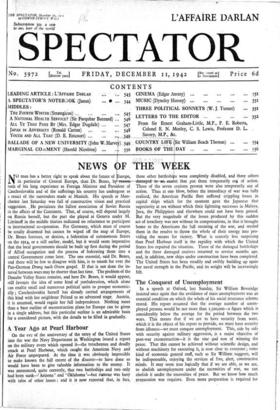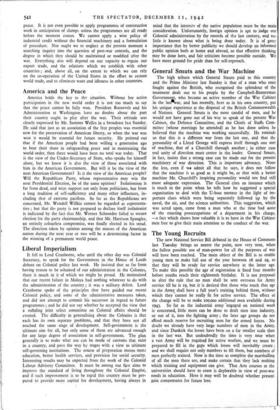The Conquest of Unemployment
In a speech at Oxford, last Sunday, Sir William Beveridge insisted once again that the avoidance of mass unemployment was an essential condition on which the whole of his social insurance scheme rested. His report assumed that the average number of unem- ployed persons would be not more than 1,500,000—a figure which is considerably below the average for the period between the two wars. This means that if we are to have security from want, which it is the object of his report to provide, we must have security from idleness—we must conquer unemployment. This, side by side with security against military aggression, is a major objective of post-war reconstruction—it is the sine quii non of winning the peace. That this cannot be achieved without scientific design, and without machinery for executing it, is now clear to everyone ; some kind of economic general staff, such as Sir William suggests, will be indispensable, enjoying the services of free, alert, constructive minds. It may seem true logically that if we are able, as we are, to abolish unemployment under the necessities of war, we can abolish it under the necessities of peace. But we know how much preparation war requires. Even more preparation is required for
peace. It is not even possible to apply programmes of constructive work in anticipation-of slumps unless the programmes are all ready before the moment comes. We cannot apply a wise policy of industrial credit without the financial machinery and a formulation of procedure. Nor ought we to neglect at the present moment a searching inquiry into the question of post-war controls, and the degree in which they should be maintained or modified after the war. Everything also will depend on our capacity to regain our export trade, and the relations which we establish with other countries ; and, above all, on the extent to which we can rely on the co-operation of the United States in the effort to restore world trade, and to eliminate want and idleness in other countries.



























